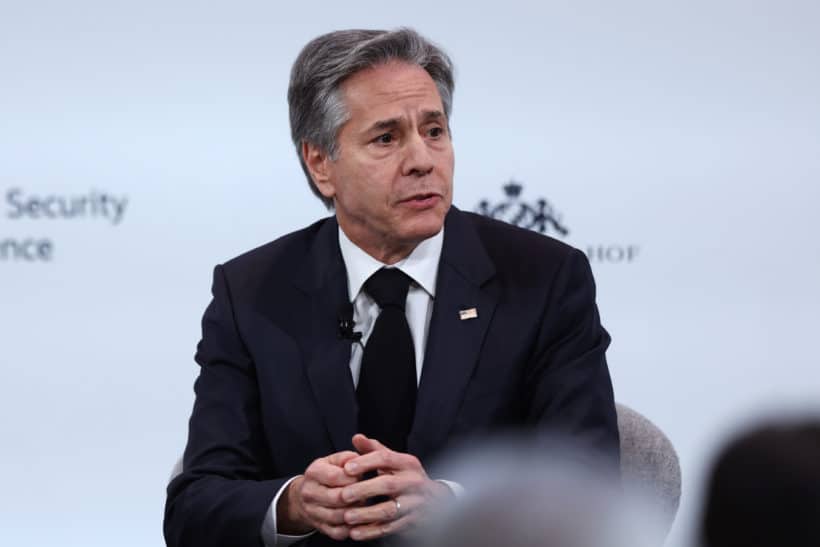
ADDIS ABABA, March 15 (Reuters) – U.S. Secretary of State Antony Blinken met Ethiopia’s foreign minister in Addis Ababa on Wednesday, as their two governments look to repair relations following friction over the two-year civil war in the Tigray region.
Blinken, who began his talks with Foreign Minister Demeke Mekonnen with a coffee ceremony, was also due to meet Prime Minister Abiy Ahmed and leaders of the Tigrayan forces that battled the federal government in the war in the northern region.
He will then head to the West African nation of Niger on Thursday, which has been confronting a growing Islamist insurgency.
“There is a lot to be done. Probably the most important thing is to deepen the peace that has taken hold in the north,” Blinken told reporters.
“We have longstanding relations and it is time to revitalize them and move forward,” Demeke said.
Blinken’s trip is the latest in a series of visits to Africa by senior U.S. officials as the Biden administration looks to reinforce ties with a continent in which China has been building diplomatic and economic relations.
The United States was outspoken in its criticism of alleged atrocities by Ethiopian forces and allied fighters from Eritrea and the Amhara region during the Tigray war, in which tens of thousands of people were killed before a peace accord was reached last November.
The U.S. government imposed wide-ranging restrictions on economic and security assistance to Ethiopia and cut access to the U.S. African Growth and Opportunity Act, a duty-free trade program that has been a boon for the country’s textile sector.
Ethiopia, Africa’s second most populous nation and a traditional U.S. ally in East Africa, accused Washington of meddling in its internal affairs and threatened to reassess the bilateral relationship.
It has denied the most serious allegations of human rights violations during in the war.
In a press briefing this week, Assistant Secretary for African Affairs Molly Phee said getting U.S. relations with Ethiopia back to normal would require additional steps by the government to “break the cycle of ethnic political violence”.
Ethiopia is also looking to restructure its debt and secure an International Monetary Fund loan, which the state finance minister said last year was being delayed in part by the Tigray war.
While the peace deal has allowed humanitarian aid to flow into Tigray, needs remain immense after the conflict left hundreds of thousands facing starvation.
Allegation of abuses, especially sexual violence, have persisted after the deal was signed, according to rights groups and humanitarian workers in the region.
Eritrean troops remain in several border areas while militia from the neighbouring Amhara region occupy large areas of territory in contested parts of western and southern Tigray, humanitarian workers said.
Eritrea’s government spokesperson has not responded to requests for comment about the matter. A spokesperson for the Amhara regional government said it and the people of Amhara were “always ready to co-operate with peace deal process and activities”.
(Writing by Hereward Holland; Editing by Robert Birsel)

